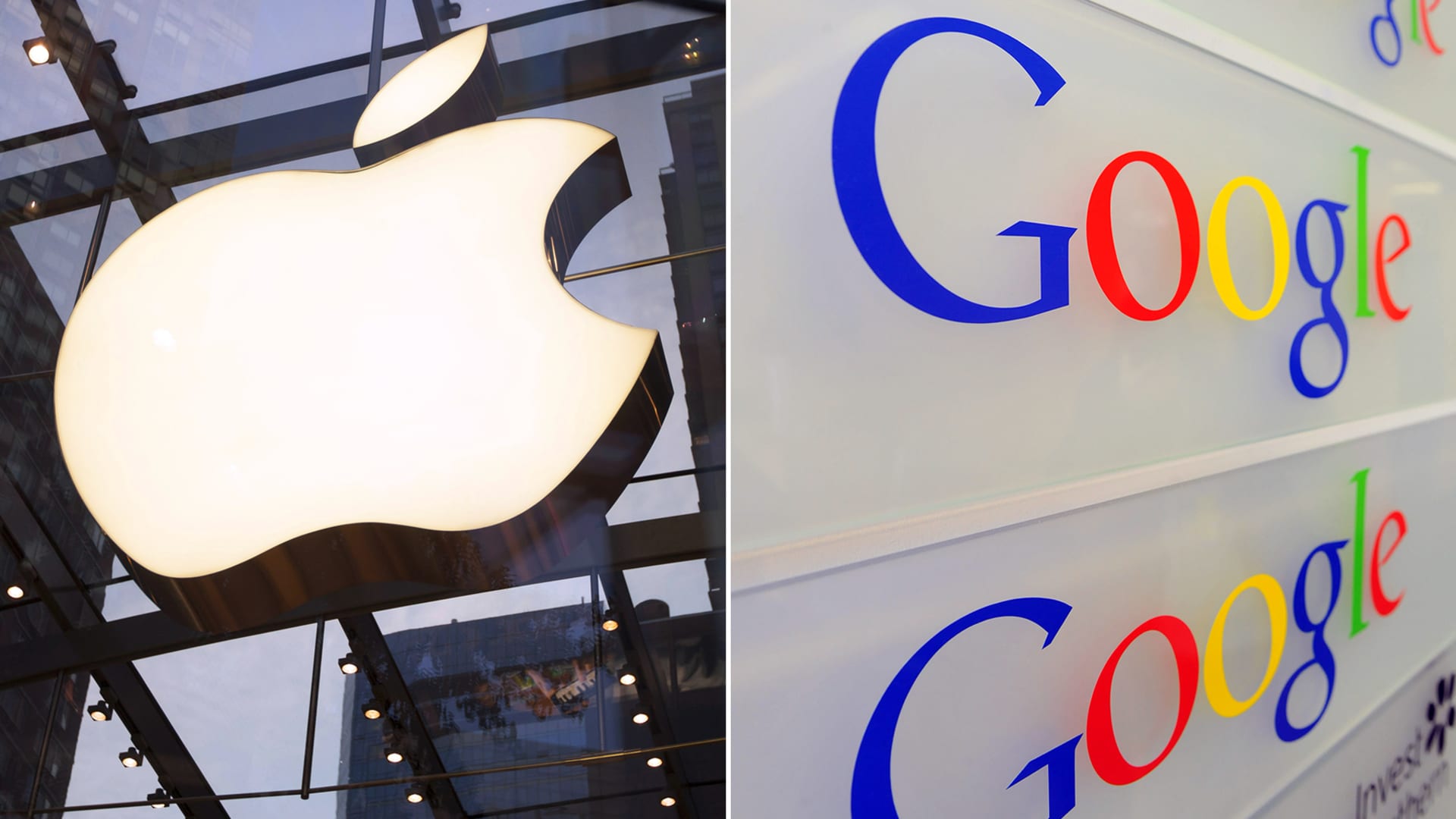Apple's Actions And Their Unintended Consequences For Google

Table of Contents
The Rise of Apple's Privacy Focus and Its Impact on Google's Ad Revenue
Apple's increasing emphasis on user privacy has significantly altered the digital advertising landscape, creating unintended consequences for Google, a company heavily reliant on targeted advertising.
App Tracking Transparency (ATT): A Major Blow to Targeted Advertising
Apple's App Tracking Transparency (ATT) framework, introduced in iOS 14.5, requires apps to obtain explicit user permission before tracking their activity across other apps and websites. This has dealt a considerable blow to Google's targeted advertising business model.
- Limits on User Data Collection: ATT significantly restricts Google's ability to collect and utilize user data for precise ad targeting. This impacts the effectiveness of Google's ad campaigns and reduces the value of its ad inventory.
- Decline in Ad Revenue: Reports suggest a decline in Google's ad revenue following the implementation of ATT, although the exact figures are debated and often intertwined with other market factors.
- Shift Towards Privacy-Focused Advertising: The impact of ATT has spurred Google and other ad tech companies to explore more privacy-preserving advertising solutions, such as contextual advertising and aggregated data approaches. However, these alternatives often prove less effective than personalized advertising.
- Google's Counter Strategies: Google has implemented various strategies to mitigate the impact of ATT, including enhanced privacy-preserving technologies and improved contextual advertising capabilities. However, these have yet to fully compensate for the loss of granular user data.
Increased User Focus on Privacy and Data Security
Apple's consistent messaging about privacy has educated users about the extent of data collection practices by various companies. This growing user awareness has fueled a demand for greater privacy controls, directly impacting Google's data-driven business model.
- User Choices Driven by Privacy Concerns: Users are increasingly opting out of data tracking and choosing privacy-centric alternatives, leading to a decrease in the effectiveness of Google's ad targeting. This includes disabling personalized ads and using privacy-focused browsers.
- Ethical Implications and Shifting User Expectations: The debate around data collection practices and user privacy has shifted significantly. Users are now more conscious of their data and expect companies to be transparent and respect their privacy preferences, a challenge for Google's data-centric approach.
Apple's Expanding Ecosystem and Reduced Reliance on Google Services
Apple's ever-growing ecosystem reduces users' dependence on Google services, further eroding Google's market share and influence.
iMessage and the Weakening of Google's Communication Dominance
The immense popularity of iMessage within the Apple ecosystem limits the usage of Google's messaging and communication platforms like Google Chat and Hangouts.
- Network Effect and Switching Costs: iMessage benefits from a strong network effect; the more people use it, the more valuable it becomes, making switching to alternative messaging platforms difficult. This creates a significant barrier to entry for Google and other competitors.
- Competitive Landscape: The messaging app market is fiercely competitive, and Apple's dominance in this space, particularly within its own ecosystem, presents a considerable challenge to Google.
Apple's Search Integration and the Erosion of Google Search Market Share (on Apple devices)
Apple's increasing integration of its own search functionalities within its operating systems and devices directly competes with Google's search dominance.
- Potential Impact on Google's Search Revenue: While Google remains the default search engine on many iPhones, Apple's growing capabilities and potential future shift could significantly impact Google's search revenue derived from Apple devices.
- Factors Influencing Search Engine Preferences: User preferences for search engines are influenced by various factors, including speed, relevance, and personalization. Apple’s growing capabilities are increasingly competing with these aspects.
- Future Scenarios: The future could see Apple further enhance its search capabilities, potentially leading to a greater erosion of Google’s search market share within the Apple ecosystem.
Apple's Hardware Dominance and the Limitations on Google's Software Expansion
Apple's strong hardware ecosystem creates limitations for Google's software expansion and overall market reach.
The Closed Ecosystem of Apple and Its Impact on Google's Android Market Share
Apple's tightly controlled ecosystem makes it difficult for Google to expand its software reach beyond its Android platform, which is already facing challenges from Apple's iOS.
- Competitive Dynamics between iOS and Android: The rivalry between iOS and Android is intense, with Apple's ecosystem consistently challenging Google's Android dominance.
- Market Share Data: While Android maintains a larger global market share than iOS, Apple's consistent growth and premium market positioning poses a long-term threat to Google's software dominance.
Challenges for Google's Wearables Strategy Due to Apple Watch’s Success
The significant success of the Apple Watch poses a considerable challenge to Google's wearable strategy, specifically its smartwatches.
- Market Share for Smartwatches: Apple holds a dominant market share in the smartwatch segment, leaving less room for competitors like Google.
- Future Implications for Google’s Smartwatch Strategy: Google needs to develop a more compelling strategy to compete effectively against the Apple Watch, which has become a key component of the Apple ecosystem.
Conclusion
Apple's actions, while seemingly focused on user privacy and ecosystem expansion, have produced several unintended consequences for Google. These include a decline in Google's targeted ad revenue, reduced reliance on Google services, and challenges to Google’s market share in key sectors like search and wearables. The ongoing competition between these tech giants significantly impacts the broader tech landscape. Stay tuned for further analysis on Apple's actions and their ongoing consequences for Google and the future of the tech industry.

Featured Posts
-
 New Calvin Klein Campaign Featuring Lily Collins Photo Gallery
May 12, 2025
New Calvin Klein Campaign Featuring Lily Collins Photo Gallery
May 12, 2025 -
 Le Depart De Thomas Mueller Du Bayern Munich Un Adieu Apres Une Longue Carriere
May 12, 2025
Le Depart De Thomas Mueller Du Bayern Munich Un Adieu Apres Une Longue Carriere
May 12, 2025 -
 Ufc 315 Muhammad Vs Della Maddalena Prediction And Betting Odds
May 12, 2025
Ufc 315 Muhammad Vs Della Maddalena Prediction And Betting Odds
May 12, 2025 -
 Semana Santa O Semana De Turismo En Uruguay Un Analisis De Su Identidad Cultural
May 12, 2025
Semana Santa O Semana De Turismo En Uruguay Un Analisis De Su Identidad Cultural
May 12, 2025 -
 Bilateral Anophthalmia In Infants Causes Diagnosis And Treatment Options
May 12, 2025
Bilateral Anophthalmia In Infants Causes Diagnosis And Treatment Options
May 12, 2025
